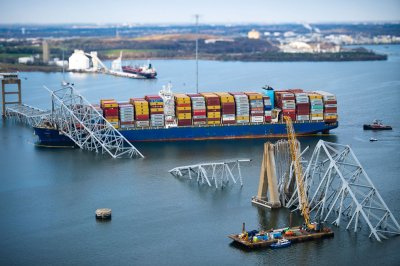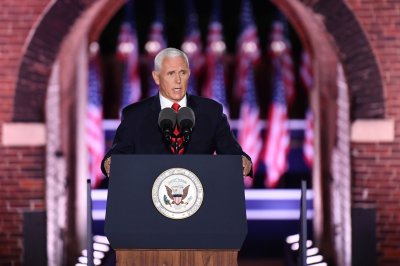Topic: Fort McHenry
Fort McHenry, in Baltimore, Maryland, is a star shaped fort best known for its role in the War of 1812 when it successfully defended Baltimore Harbor from an attack by the British navy in the Chesapeake Bay. It was during this bombardment of the fort that Francis Scott Key was inspired to write "The Star-Spangled Banner," the poem that would eventually be set to the tune of the The Anacreontic Song, to become the national anthem of the United States.
Beginning at 6:00 A.M. on September 13, 1814, British warships continuously bombarded the fort for 25 hours. The American defenders had 18, 24, and 38 pound (8, 11 and 17 kg) cannons with a range of 1.5 miles (2.4 km). The British had a range of 2 miles (3 km), and their rockets had a 1.75 mile (2.8 km) range, but they were not very accurate. The British ships were unable to pass Fort McHenry and penetrate Baltimore Harbor because of defenses including a chain, sunken ships, and the American cannon. They were, however, able to come close enough to fire rockets and mortars on the fort. Due to the poor accuracy of the British weapons and the limited range of the American guns, little damage was done on either side, but the British ceased their attack on the morning of September 14, 1814, and the naval part of the British invasion of Baltimore had been repulsed.
The Americans did suffer casualties, amounting to four killed and twenty-four wounded, including one African American soldier and a woman who was cut in half by a bomb as she carried supplies to the troops. At one point during the bombardment a bomb crashed through the fort's powder magazine. Fortunately for the defenders, either the fuse was extinguished by the rain or the bomb was merely a dud.
It uses material from the Wikipedia article "Fort McHenry."













